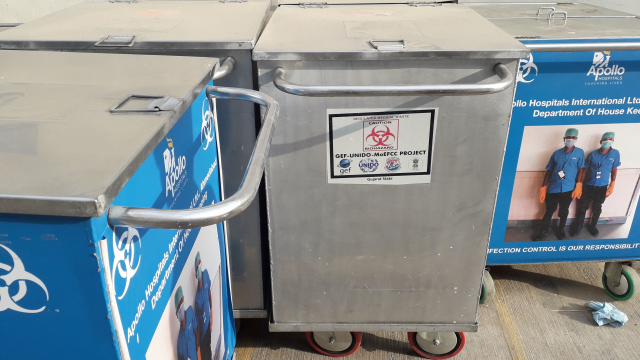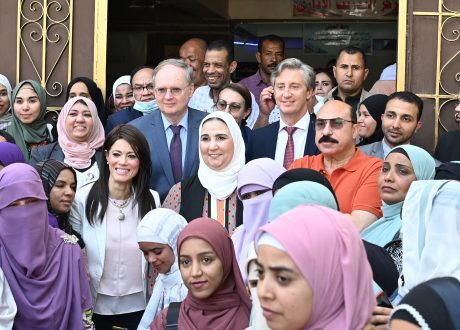
AUC, CSR Egypt team up to introduce joint certificate program in CSR
The American University in Cairo (AUC) teamed up with CSR Egypt to introduce a new ...

The United Nations Industrial Development Organization (UNIDO) decided to respond to the coronavirus (COVID-19) through helping countries ditch their medical waste.
The organization has significant experience of working with countries to improve waste management processes.
Central to effective support for medical waste management is the promotion of Best Available Techniques (BATs) and Best Environmental Practices (BEPs), and UNIDO has provided technical assistance in this area to India, China, Belize, Senegal and several other countries in recent years.
UNIDO has been collaborating with the Indian Ministry of Environment, Forests and Climate Change on a project focusing on medical waste management in five states; Gujarat, Karnataka, Maharashtra, Odisha and Punjab.
The microwave-technology thermal disinfection unit procured by the ongoing Global Environment Facility (GEF)-funded project in India is now being used for the treatment of COVID-19 waste.
Participating states in India have also prepared state-wide guidelines on the management of COVID-19 waste in line with the Biomedical Waste Management Rules 2016, which were formulated on the basis of an initial baseline survey carried out under the project.
The procurement of personal protective equipment (PPE) for medical waste handlers in Karnataka and Maharashtra is also underway.
“As healthcare facilities across the globe continue to face immense pressure in responding to this unprecedented global health emergency, medical waste management must also be addressed urgently,” affirms Smail Alhilali of UNIDO’s Stockholm Convention Division.
In China, a GEF project implemented jointly by UNIDO and the Government of China has successfully reduced emissions of harmful unintentionally-produced Persistent Organic Pollutants (u-POPs) in the medical waste treatment sector.
This reduction was achieved by helping more than 150 production lines to adopt non-incineration technology, consequently avoiding the production of toxic u-POPs, such as dioxins and furans.
Under the project, a technology transfer center was established, with around 50,000 people trained on all aspects of medical waste management (regulatory, disposal, segregation, etc.) at dedicated training centers.
Furthermore, the temporary storage conditions and collection network were significantly improved in the six demonstration provinces, contributing to the reduction of not only environmental risk, but also infection risk, during the long-distance transportation and disposal of medical waste in rural areas.
The replication of know-how and experience gained from previous and ongoing medical waste management projects will serve to increase vital capacity building and knowledge of relevant equipment needed in these times of COVID-19 crisis.
The American University in Cairo (AUC) teamed up with CSR Egypt to introduce a new ...
Egypt’s Ministry of Social Solidarity, the United Nations Development Program (UNDP) and the European Union ...
Saudi Arabia and the United Nations Environment Program (UNEP) have launched campaigns to combat desertification, ...


اترك تعليقا